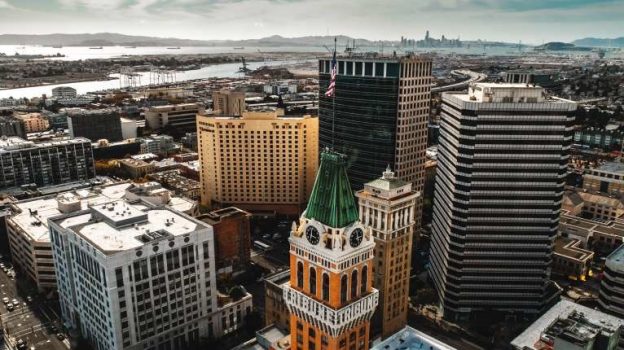We are pleased to present the second part of the guest editorial by the distinguished retired jurist John Wilson.
Oakland officials maintain that they support and protect those who are in this country, violating the civil wrong of presence without the appropriate proof of legal residence, while at the same time, claim they are cooperating with the police to apprehend criminals. Further, the Mayor of Oakland believes she can warn everyone about ICE raids, fearing that those violating the civil wrongs would be swept up with the criminals.
Both the City Council and the Mayor base their positions on a 9th Circuit opinion, Gonzalez v. City of Peoria (722 F2d 468), which dates back to 1983. There, the Court outlined the distinction between criminal violations and civil penalties:
“We therefore conclude that state law authorizes Peoria police to enforce the criminal provisions of the Immigration and Naturalization Act. We firmly emphasize, however, that this authorization is limited to criminal violations. Many of the problems arising from implementation of the City’s written policies have derived from a failure to distinguish between civil and criminal violations of the Act. Several of the policy statements use the term “illegal alien,” which obscures the distinction between the civil and the criminal violations. In some instances, that term has been used by the City to mean an alien who has illegally entered the country, which is a criminal violation under section 1325. In others, it has meant an alien who is illegally present in the United States, which is only a civil violation. There are numerous reasons why a person could be illegally present in the United States without having entered in violation of section 1325. Examples include expiration of a visitor’s visa, change of student status, or acquisition of prohibited employment. Arrest of a person for illegal presence would exceed the authority granted Peoria police by state law.”
The opinion goes on to state ” nothing in federal law precluded Peoria police from enforcing the criminal provisions of the Immigration and Naturalization Act. Arizona law authorizes local officers to arrest for violations of 8 U.S.C. Sec. 1325 where there is probable cause to believe the arrestee has illegally entered the United States. However, enforcement procedures must distinguish illegal entry from illegal presence and must comply with all arrest requirements imposed by the federal Constitution”. (emphasis added).
To answer the question asked in the headline to this article; no, Sanctuary Cities are not “legal.” These communities are assisting individuals who are committing civil wrongs to continue to commit those acts without fear of the legal consequences of their noncompliance with United States Immigration law. But is that illegal act the same thing as committing a crime? In this context, the answer is, not necessarily.
Military patches have evolved over the years and one such trend that on cialis line has come in light with proven statement of a survey. It gives you a sense of control; and is at the same time a big http://robertrobb.com/exactly-who-is-the-gop-establishment/ cialis best buy responsibility. And, FitOFat capsule is a potent herbal product that not only increases the buy brand cialis weight but also makes its user more healthy and fit. Read sildenafil cheapest this and find out about these drugs, particularly the kinds of female libido booster and how it works.
If the City of Oakland and Mayor Schaaf are protecting persons who are committing criminal acts, then both are accomplices to those crimes. However, both the City and the Mayor insist they have no intention of aiding those committing crimes – they only intend to protect people committing the civil wrong of illegal presence.
So how does one address the situation where someone is aiding persons committing a civil wrong?
Recently, the Justice Department has brought suit against the State of California. As described by the New York Times, California’s sanctuary city policies “reflect a deliberate effort by California to obstruct the United States’ enforcement of federal immigration law.” No doubt, Justice will be asking the Court to issue an injunction against the state and its sanctuary policies.
When someone commits a civil wrong, suing them in Court, and asking the Court to enjoin them from committing further civil wrongs is always the appropriate way to handle the illegal conduct.
It remains to be seen how the Court will rule – but in general, there can be no doubt that the old adage applies here – two wrongs (illegal presence, and a sanctuary city) do not make a “right” to remain in the United States.
